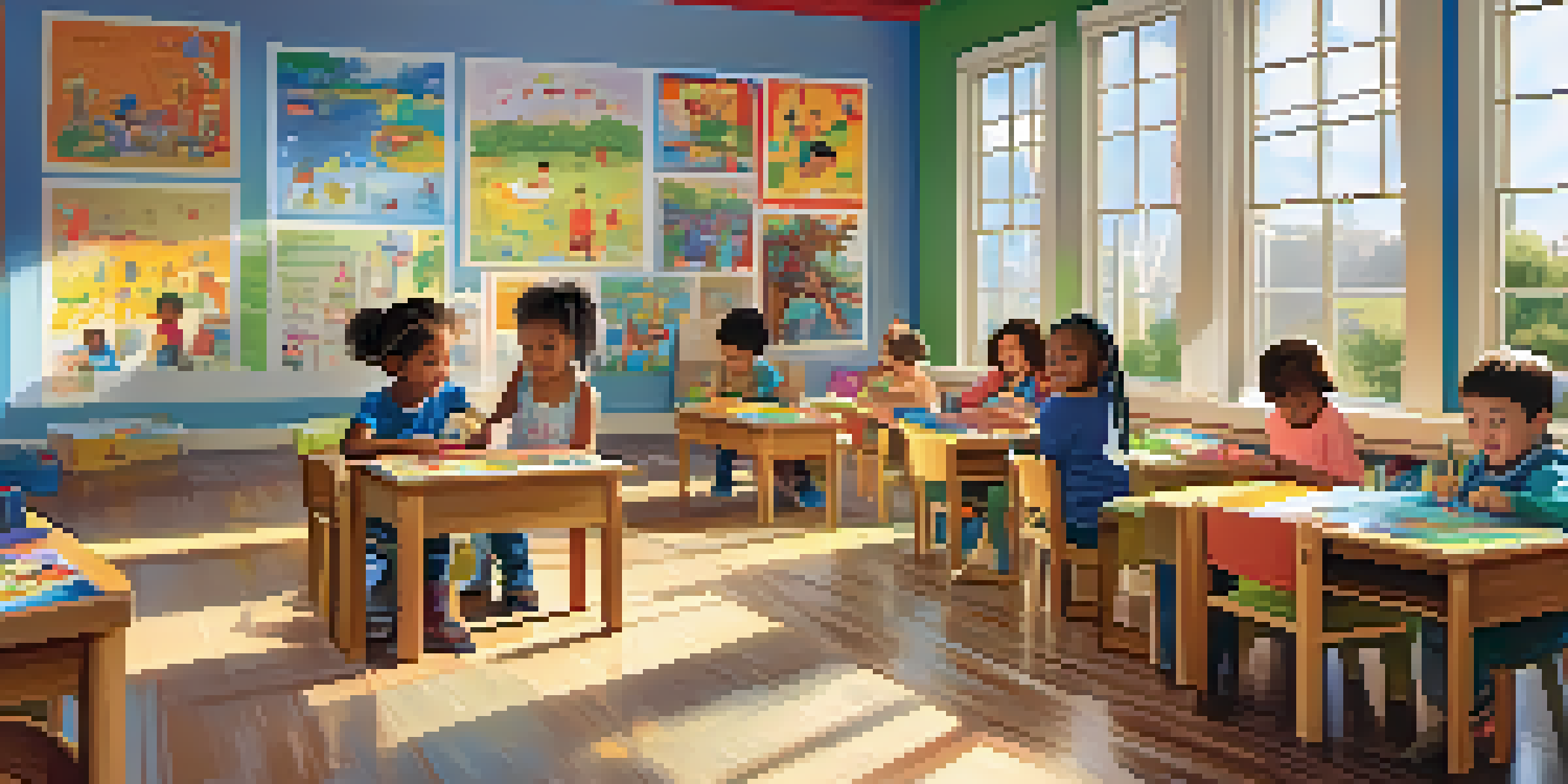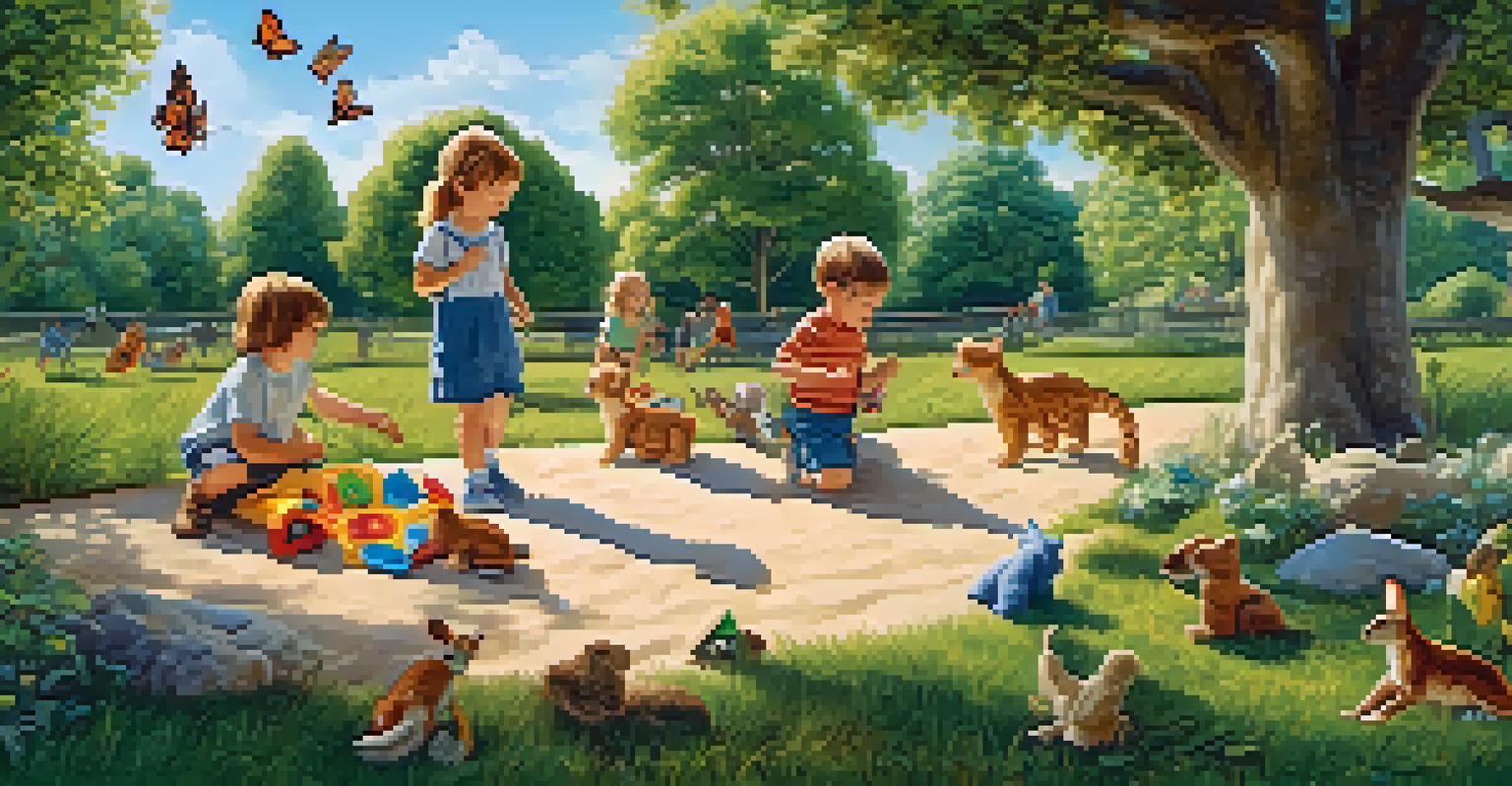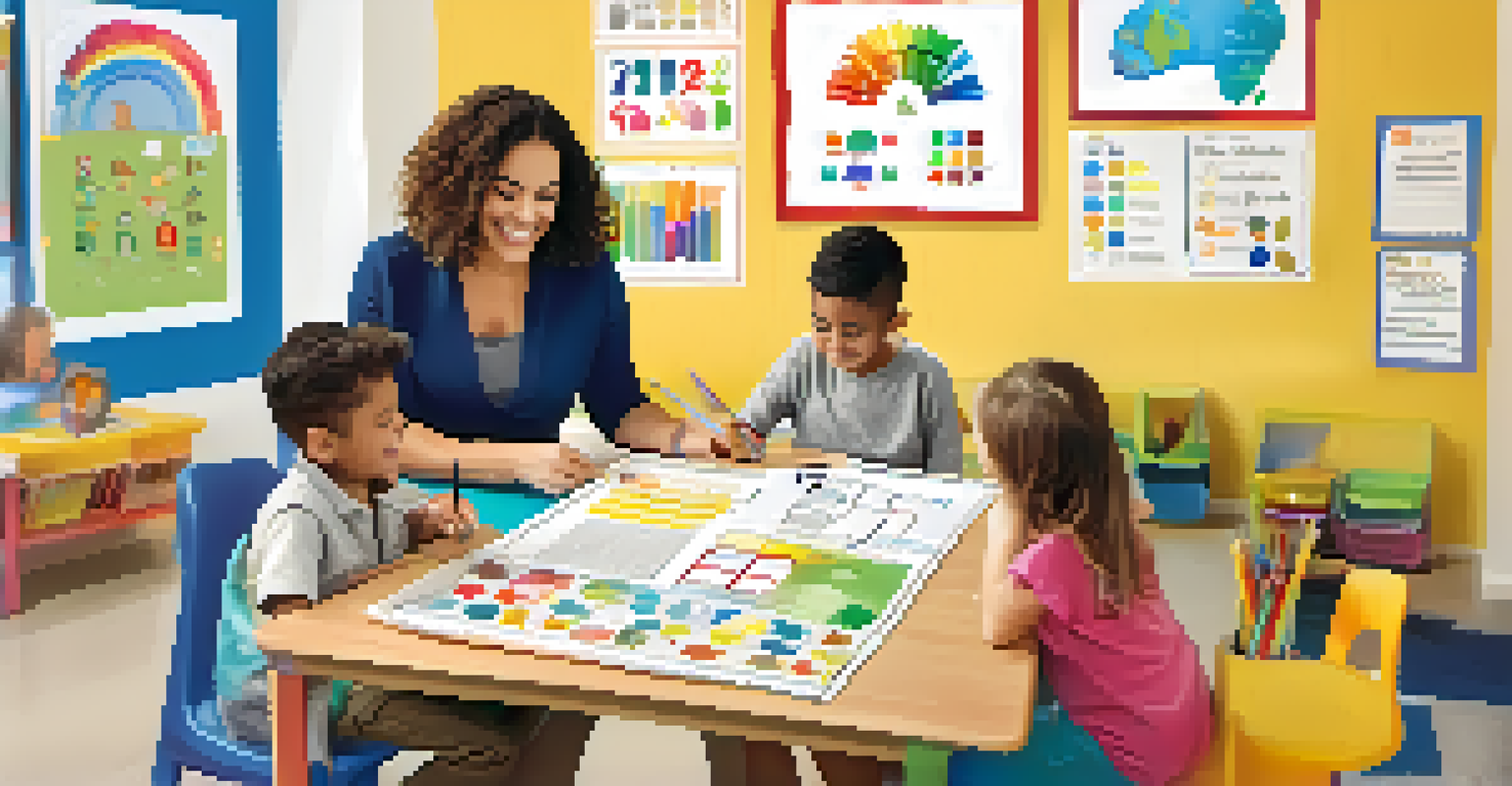Implementing Personalized Learning in Early Childhood Education

Understanding Personalized Learning in Early Education
Personalized learning tailors educational experiences to individual needs, abilities, and interests. In early childhood education, this approach recognizes that each child learns differently and at their own pace. By focusing on the unique traits of each child, educators can foster a more engaging and effective learning environment.
Every child is an artist. The problem is how to remain an artist once we grow up.
Imagine a classroom where every child is encouraged to explore their passions, whether that's painting, building, or storytelling. This flexibility not only nurtures their creativity but also builds a foundation for lifelong learning. Personalized learning empowers teachers to adapt their methods to fit these diverse needs, creating a richer educational experience.
This approach also emphasizes the importance of formative assessments, which help educators understand where each child is in their learning journey. Rather than relying solely on standardized tests, teachers can observe and interact with students to guide their learning paths. This ensures that children receive the support they need to thrive.
The Role of Play in Personalized Learning
Play is a fundamental aspect of early childhood education and plays a critical role in personalized learning. It allows children to explore, experiment, and express themselves in a safe environment. When educators incorporate play into their lessons, they create opportunities for children to engage with content in ways that resonate with them personally.

For instance, a child fascinated by animals might learn about biology through a themed play area filled with animal figurines and books. By integrating their interests into the learning process, educators can make lessons more relatable and enjoyable. This not only captures children's attention but also fosters a sense of ownership over their education.
Personalized Learning Tailors Education
This approach customizes learning experiences to meet the unique needs, interests, and abilities of each child.
Additionally, when children play, they develop crucial social skills, emotional intelligence, and problem-solving abilities. These skills are essential for their overall development and can be further enhanced through personalized learning experiences that align with their play preferences and learning styles.
Creating Individualized Learning Plans
An individualized learning plan (ILP) is a strategic tool that helps educators tailor their approach to each child's needs. This plan outlines specific goals, learning strategies, and assessment methods for every student. By developing ILPs, educators can ensure that they are addressing the unique strengths and areas for improvement for each child.
Play is the highest form of research.
To create effective ILPs, teachers can gather insights from parents, caregivers, and the children themselves. Engaging families in this process helps build a supportive network around the child, making learning a collaborative effort. Moreover, children can contribute to their own plans by expressing their interests and learning preferences.
Regularly reviewing and updating ILPs is crucial for maintaining their effectiveness. As children grow and develop, their needs and interests may change, requiring adjustments to their personalized learning strategies. This dynamic process ensures that each child's education remains relevant and impactful.
Utilizing Technology for Personalized Learning
Technology can be a powerful ally in implementing personalized learning in early childhood education. From interactive apps to digital storytelling tools, various resources can cater to individual learning styles and preferences. By integrating technology into the classroom, educators can create a more engaging and adaptive learning environment.
For example, educational games that adapt to a child's skill level can provide a tailored challenge, ensuring that learning is neither too easy nor too difficult. This helps maintain students' motivation and encourages them to take ownership of their learning journey. Furthermore, technology can facilitate collaboration among students, allowing them to learn from one another.
Play Enhances Learning Engagement
Incorporating play into lessons allows children to explore their interests, fostering creativity and ownership over their education.
It's essential, however, to strike a balance between technology use and traditional learning methods. While technology can enhance personalized learning, hands-on experiences and face-to-face interactions remain vital for social and emotional development. A blended approach ensures that children benefit from the best of both worlds.
Encouraging a Growth Mindset in Young Learners
A growth mindset, the belief that abilities can be developed through dedication and hard work, is crucial in early childhood education. By fostering this mindset, educators can help children embrace challenges, learn from mistakes, and persevere in the face of obstacles. This attitude is particularly beneficial in personalized learning settings, where students may encounter tasks tailored to their individual levels.
To encourage a growth mindset, educators can celebrate effort and progress rather than just achievements. For instance, praising a child for trying hard on a difficult project reinforces the idea that persistence is valuable. This approach helps children understand that learning is a process, and setbacks are simply opportunities for growth.
Moreover, incorporating reflections and discussions about challenges can further enhance this mindset. When children share their experiences with overcoming obstacles, they learn from each other and build resilience as a community. This supportive environment empowers them to tackle new learning experiences with confidence.
Building Strong Relationships with Families
Family involvement is a cornerstone of personalized learning in early childhood education. When parents and caregivers actively participate in their child's education, they provide invaluable insights that help educators understand each child's unique needs. Building strong relationships with families fosters a collaborative approach to learning and strengthens the child's support system.
Regular communication between educators and families is essential for establishing these relationships. This can include sharing updates on the child's progress, discussing learning goals, and inviting families to participate in classroom activities. By keeping families informed and engaged, educators create a positive partnership that enhances the child's learning experience.
Family Involvement Strengthens Learning
Active participation from families provides valuable insights that support personalized learning and create a collaborative educational environment.
Additionally, educators can provide resources and strategies for families to support personalized learning at home. This empowers parents to reinforce their child's interests and learning objectives outside the classroom. When families and educators work together, children benefit from a holistic approach to their education.
Assessing Progress in Personalized Learning Environments
Assessing progress in personalized learning environments requires a thoughtful approach that goes beyond traditional testing methods. Formative assessments, such as observations, anecdotal records, and portfolio assessments, allow educators to gauge children's development in real time. These assessments provide a more comprehensive picture of a child's learning journey.
For instance, an educator might observe a child working on a project and take notes on their problem-solving skills and creativity. This qualitative data can be more insightful than a standardized test score, as it captures the nuances of a child's learning process. Moreover, using multiple assessment methods ensures that all aspects of a child's development are recognized.

Regularly sharing assessment results with families fosters transparency and collaboration. It allows parents to understand their child's progress and contribute to their learning goals. Together, educators and families can celebrate achievements and identify areas for further support, ensuring that every child continues to thrive in their personalized learning journey.